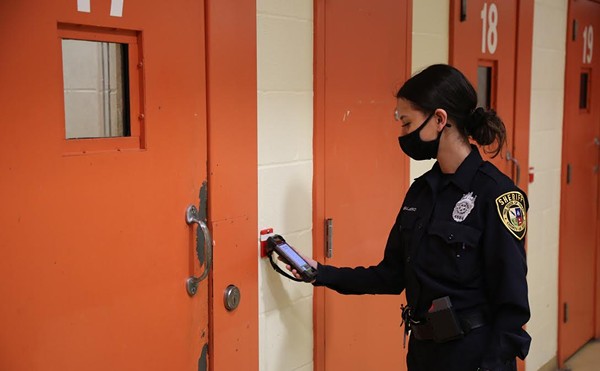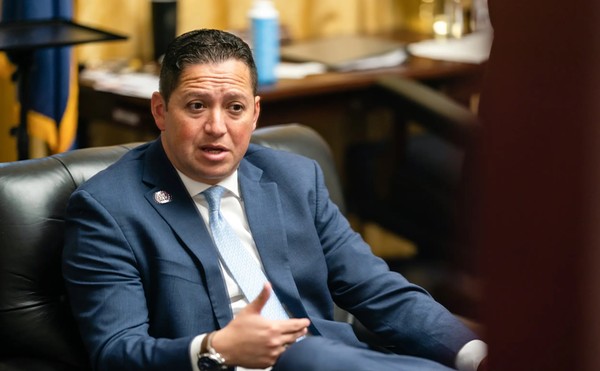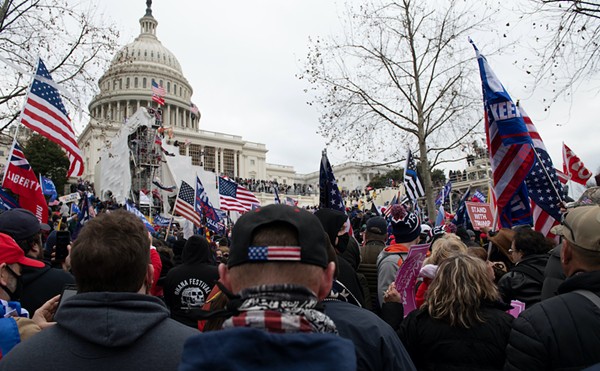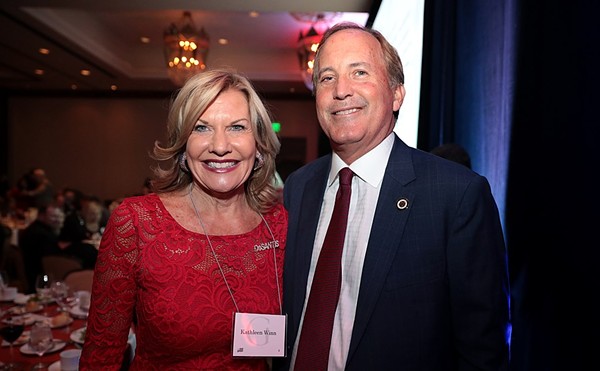When the counting in Florida was halted by extraordinary order of the Supreme Court, George W. Bush had 537 more votes than Al Gore. He was awarded all of the state’s 27 electoral votes and thus residency in the White House. Like Fahrenheit 9/11, Call It Democracy begins by recalling the Florida fiasco. The film (which has been making the festival and college circuit and can be ordered online at 7thart.com) reviews what went wrong in the Sunshine State — discouragingly long lines, bewildering ballots, questionable interpretation of votes, citizens (disproportionately black) erroneously purged from their precinct rolls. Harvard law professor Alan Dershowitz not only disagrees with the five justices who handed the election to Bush; he accuses them of corruption: “Scalia made that Faustian deal with the devil.” Former prosecutor Vincent Bugliosi calls the 2000 election “one of the most frightening and dangerous events ever to have happened in American history.” As the consequences of the Bush victory continue to expand like an oil spill in the Galapágos, the fright has metastasized into horror.
Along with 1824, 1876, and 1888, 2000 was one of four years in which the presidency was awarded to a candidate who did not win the popular vote. And, notes director Matthew Kohn, there could easily have been more. In 2004, a switch of 50,000 votes in Ohio would have given John Kerry an electoral majority but still a minority of the popular vote. Article Two of the Constitution specifies that the president be selected by a majority of electors, not voters. Each state is allocated electors commensurate with its Congressional delegation — two for its Senators plus the number it sends to the House of Representatives; Texas has 34 electoral votes, North Dakota three. The system guarantees states’ rights at the expense of human rights. Because each state is given two electors regardless of population, a vote in Bismarck carries more weight than one in Bexar County.
Furthermore, since 48 of the states operate on a winner-take-all basis (a one-vote majority is sufficient to amass all of the state’s electoral votes), citizens outside of a few battleground states are effectively disenfranchised. In 2004, candidates vied for support in Ohio, Michigan, Florida, Pennsylvania, and New Mexico, where the majority was in doubt. But neither Bush nor Kerry wasted much time or money on Texas or California. It made more sense to troll for votes in Albuquerque than San Antonio or Santa Barbara.
As a senator from Indiana from 1962-80, Birch Bayh sponsored the 25th and 26th Amendments. On camera, he makes a compelling case for a 28th, which would abolish the Electoral College and mandate selection of the president by direct election. In 1969, such a proposal passed the House 338-70, but the Senate rejected it by 15 votes.
However, even with direct election of presidents, democracy in America would be a sham if votes were rigged or stolen. Call It Democracy moves awkwardly between the injustice of empowering states rather than people and the incompetence and fraud that exist in the administration of elections. It examines how the Help America Vote Act, passed in response to the electoral debacle of 2000, actually increased the likelihood of abuse. The new law encouraged local adoption of paperless voting, which is highly vulnerable to fraud and leaves no reliable trail for auditors. And Diebold, the company that supplies the most voting machines, hardly seemed impartial when, in 2004, its president, Walden O’Dell, active in the Bush campaign, promised to deliver all of Ohio’s electoral votes to his candidate.
Can we call it democracy when votes are skewed by state, or plainly rigged? Call It Democracy might have focused on either problem — or the crazy quilt of election regulations and practices among 3,067 counties, or how getting on the ballot is almost impossible for third-party candidates. While presuming to export democracy to the Middle East, the United States needs to ensure an adequate domestic supply.

















